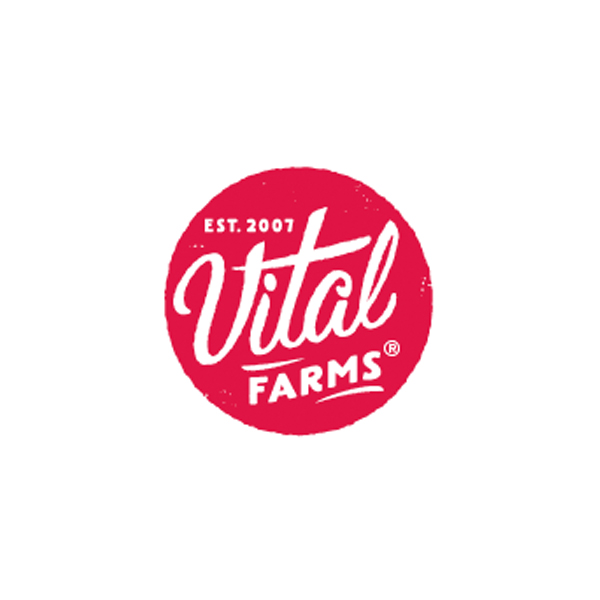Vital Farms: Happy Chickens and Happy Farmers
Video: Highlighting Vital Farms Multi-Stakeholder Impact
Attracted to the company’s rapid growth and deep sustainability mission, SJF Ventures invested in Vital Farms in 2013. Vital Farms is the nation’s leading provider of pasture-raised eggs and poultry products.
Vital Farms’ core mission is to bring ethically produced food to the table by coordinating a collection of family farms to operate with a well-defined set of organic agricultural practices that includes the humane treatment of farm animals as a central tenet. The company upholds a strict standard of ensuring all supplier farms provide at least 108 square feet per bird of year round vegetative land for chickens to graze. By marketing the superior nature of the products, it is intended to encourage consumers to migrate from their traditional egg choices, and by doing so, create opportunities for more family farms to convert from harmful industrial practices.
Vital Farms provides an example of sustainable agriculture at its finest because the company seeks to positively impact all of its multiple stakeholders.
Family farm suppliers
Vital Farms is creating income for small-scale family farms across the country. From Georgia to California, 52 family farmers are now a part of the Vital Farms supply chain, which is growing each year. These farmers can often earn more income producing eggs for Vital Farms with far fewer chickens than running a traditional large-scale chicken farm. Vital Farms’ suppliers are happy to practice sustainable agriculture without the dirty environments of conventional chicken farming.
Chickens
Humane treatment of all Vital Farms chickens is at the core of Vital Farms’ strategy. In contrast to large-scale chicken farming where chickens are confined in pens often without room to walk around or access to sunshine and are fed large amounts of grain, Vital Farms allows its chickens to live as they naturally would. Vital Farms happy, healthy hens run around outdoors, eating grass and critters as part of a more diverse diet.
Consumers
Healthier chickens lay healthier eggs. Vital Farms consumers benefit from a more nutritious and superior tasting pasture-raised egg. In 2007 Mother Earth News, a strong advocate of better farming practices, ran a nutritional comparison and concluded pasture-raised eggs contain 33% less cholesterol, 25% less saturated fat, 67% more Vitamin A, 200% more omega-3 fatty acids, 300% more Vitamin E and 700% more beta carotene than a conventional egg. In 2008 a follow up study showed that the significant sunlight exposure Vital Farms chickens enjoy translates to their eggs, resulting in 4 to 6 times the Vitamin D levels found in conventional eggs.
Environment
Vital Farms chickens roam pastures and eat grasses, weeds, bugs and worms as they are natural omnivores. Every few days farmers move them onto a new patch of grass, which keeps the chickens on the freshest greens and ensures that the pastures have plenty of time to recover. Vital Farms never uses any pesticides or herbicides because the company does not want to pollute the waters that we all share. And the chickens help by leaving behind the best naturally organic fertilizer on the planet so further fertilization is not needed. Vital Farms also provides the chickens with a supplemental feed that is 100% vegetarian, antibiotic and hormone, free and some flocks also receive Certified Organic or non-GMO feed.
Employees
In addition to the job creation for its family farm suppliers, Vital Farms is a rapidly growing company employing its own direct workforce. Vital Farms pays all of its employees a living wage, and over 50% of workers own stock or stock options in the company.
Investors
Vital Farms provides an example of a company that can scale its mission while also scaling its business success. The company has experienced significant revenue growth over the past 7 years and ranked #1 or #2 among Inc. Magazine’s fastest growing food and beverage companies for the past two years.